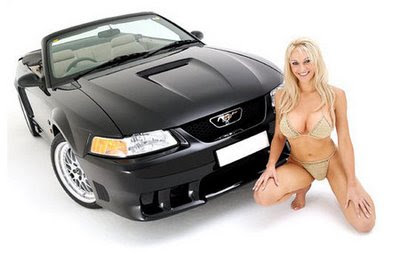|
|
|
|
|---|
Monday, March 15, 2010
2002 Audi A4 Cabriolet 3.0
Audi A4 B6 (2000-2005)
An all-new A4 debuted in late 2000, now riding on the B6 platform. The 1.6 L base model remained unchanged, but most other gasoline engines received either displacement increases or power upgrades. The 1.8 20 valve Turbo was now available in two additional versions, with 150 or 180 PS (110 or 132 kW), this one with a standard six-speed gearbox, while the naturally aspirated 1.8 L straight-4 and 2.8 L V6 were replaced by 2.0 L and 3.0 L units, still with five valves per cylinder, the most powerful of which was capable of 220 PS (162 kW) and 300 Nm (221 ft.lbf) of torque. The 1.9 TDI engine was upgraded to 130 PS and was now available with quattro, while the 2.5 V6 TDI high-end model was introduced with 180 PS (132 kW) and standard quattro. The Avant arrived in mid 2001.
For 2002, Audi upgraded power in the 1.8 Turbo engines to 163 and 190 PS (120 and 140 kW respectively), and in the 2.5 TDI intermediate version to 163 PS. A year later, Audi reintroduced the S4, now powered by a 344 PS (253 kW) 4.2 L V8, as well as an A4 Cabrio convertible variant, finally replacing the 80-based Audi Cabriolet that had been discontinued in 1998.
Audi also introduced a continuously variable transmission developed by LuK, named Multitronic, which replaced the Tiptronic on front wheel drive models. The transmission won considerable praise from the automotive press and is generally regarded as being the best of its type in the world, due to its light weight and promptness in response, but its use was limited to models with a maximum of 310 Nm (229 ft.lbf).
Borrowing from the Audi A6, the boot was redesigned to remove the extension of the top edge with a smoother fold line, and the taillight assembly now forms part of the top line.
A new cabriolet version of the A4 was introduced in 2002 to replace the ageing Audi 80-based model. It incorporated some minor styling changes which eventually found their way to the sedan version (such as body-colored lower bumper and sill panels).Audi A4 Cabriolet 3.0
Audi A4 B6 (2000-2005)
An all-new A4 debuted in late 2000, now riding on the B6 platform. The 1.6 L base model remained unchanged, but most other gasoline engines received either displacement increases or power upgrades. The 1.8 20 valve Turbo was now available in two additional versions, with 150 or 180 PS (110 or 132 kW), this one with a standard six-speed gearbox, while the naturally aspirated 1.8 L straight-4 and 2.8 L V6 were replaced by 2.0 L and 3.0 L units, still with five valves per cylinder, the most powerful of which was capable of 220 PS (162 kW) and 300 Nm (221 ft.lbf) of torque. The 1.9 TDI engine was upgraded to 130 PS and was now available with quattro, while the 2.5 V6 TDI high-end model was introduced with 180 PS (132 kW) and standard quattro. The Avant arrived in mid 2001.
For 2002, Audi upgraded power in the 1.8 Turbo engines to 163 and 190 PS (120 and 140 kW respectively), and in the 2.5 TDI intermediate version to 163 PS. A year later, Audi reintroduced the S4, now powered by a 344 PS (253 kW) 4.2 L V8, as well as an A4 Cabrio convertible variant, finally replacing the 80-based Audi Cabriolet that had been discontinued in 1998.
Audi also introduced a continuously variable transmission developed by LuK, named Multitronic, which replaced the Tiptronic on front wheel drive models. The transmission won considerable praise from the automotive press and is generally regarded as being the best of its type in the world, due to its light weight and promptness in response, but its use was limited to models with a maximum of 310 Nm (229 ft.lbf).
Borrowing from the Audi A6, the boot was redesigned to remove the extension of the top edge with a smoother fold line, and the taillight assembly now forms part of the top line.
A new cabriolet version of the A4 was introduced in 2002 to replace the ageing Audi 80-based model. It incorporated some minor styling changes which eventually found their way to the sedan version (such as body-colored lower bumper and sill panels).
Subscribe to:
Post Comments (Atom)













No comments:
Post a Comment